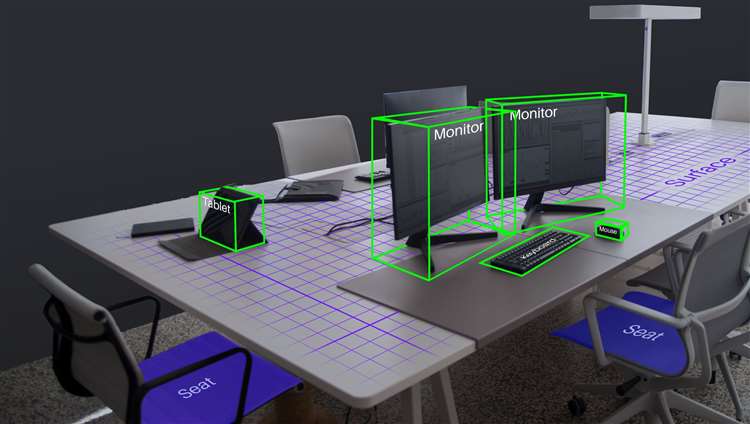TL;DR:
- Phantom Technology’s CASSI spatial AI is set to power DigiLens ARGO smart glasses.
- This partnership combines cutting-edge technology for enhanced augmented reality experiences.
- CASSI’s capabilities include spatial search, contextual assistance, and task management via voice commands.
- ARGO glasses feature advanced components like Crystal30 waveguides and Qualcomm Snapdragon XR2.
- The collaboration promises to revolutionize mobile computing and enterprise workflows.
- Phantom Technology’s journey, funded by grants, has evolved from gaming to AI wearables.
- Their spatial AI aims to index the 3D world, offering a transformative perspective.
Main AI News:
In the realm of smart glasses, a groundbreaking revolution is set to unfold with the forthcoming launch of the DigiLens ARGO range, poised to be powered by Phantom Technology’s cutting-edge spatial AI assistant, CASSI. In a strategic partnership between the Silicon Valley-based DigiLens and the innovative Phantom Technology, this collaboration is ushering in a new era of AI wearables.
Phantom Technology, an AI startup founded in 2019 by a group of visionary game engineers, code wizards, and alien researchers, is on a mission to pioneer state-of-the-art human interface technologies for AI wearables. Their journey led them to a game-changing partnership with DigiLens, marking a significant milestone in the evolution of smart glasses.
The inception of this partnership, which began 11 months ago, was the brainchild of Phantom co-founder and CEO Farbod Shakouri. He describes their journey as a quiet but purposeful buildup over the past three to four years, culminating in their relocation to Cambridge just last year.
“At CES in January this year,” Farbod shares, “we found a company called DigiLens, and we approached them with our software, CASSI. They immediately recognized the potential, and after 11 months of dedicated collaboration, CASSI is set to launch on their platform next year.“
CASSI, the novel spatial AI assistant for wearable devices, is engineered to elevate user productivity and awareness in enterprise settings. It’s a multifaceted tool that can assist you in locating your misplaced bike or provide real-time descriptions of objects within your field of vision. By amalgamating computer vision algorithms with a sophisticated large language model, CASSI generates practical solutions in augmented reality through spatial awareness.
The transformative power of generative AI empowers CASSI with a profound understanding of real-world context, enabling it to furnish users with step-by-step guidance across a wide spectrum of tasks. The collaboration with DigiLens will not only enhance the ARGO experience for customers but also expedite Phantom’s mission to augment human capabilities with AI-powered wearables – an endeavor aptly described as “real-world superpowers in the making.”
ARGO users will have access to a suite of CASSI features using voice commands, including spatial search, contextual assistance, and task management. These features are set to redefine the utility and potential of smart glasses for enterprise and lite-industrial markets.
ARGO stands out as one of the first purpose-built, all-in-one XR smart glasses, featuring DigiLens’ state-of-the-art Crystal30 waveguides and EnLiten30 projector. Powered by the Qualcomm Snapdragon XR2 platform and equipped with inside-out tracking capabilities, ARGO empowers developers to push the boundaries of headworn AR technology.
Brian Hamilton, VP of Sales and Marketing at DigiLens, anticipates transformative changes, asserting, “ARGO, integrated with a spatial AI assistant platform like CASSI, will change the future of mobile computing as we know it – for the better.”
The journey of Phantom Technology has been marked by stealthy innovation and reliance on grants to reach this juncture. Farbod’s journey, starting with his partnership with Daniel Mosaid during a degree course at Bournemouth University, has been a testament to their unwavering commitment to innovation.
Phantom Technology began with a games engine, which was successfully launched on the Unity games platform. Recognizing the crowded landscape of developed toolkits, they pivoted toward smart glasses, leading to their collaboration with DigiLens.
“Generative AI is a whole new utility for wearable devices,” Farbod emphasizes, “it’s a new category emerging for use in wearable cameras, made possible by large language models and AI.”
CASSI’s integration into all DigiLens glasses as default AI software with vision capabilities further underscores the profound transformation it brings to the world of augmented reality. It introduces the concept of “spatial AI,” allowing users to interact with their surroundings seamlessly.
As James Banfield, head of commercial partnerships, aptly puts it, “We’re entering an era of wearable AI, ushering in super-intelligence and spatial abilities for enterprise businesses. It’s a thrilling time for innovation and so exciting to be part of the UK’s cutting-edge AI efforts.“
Phantom Technology’s vision extends beyond mere functionality. They are building an operating system that learns about its environment from the moment it’s turned on, indexing everything in 3D space. With spatial search capabilities and innovative 3D indexing, their inventions are on the cusp of receiving patents, reinforcing their commitment to pushing the boundaries of what’s possible in the world of spatial AI.
Conclusion:
The integration of Phantom Technology’s spatial AI into DigiLens ARGO smart glasses signifies a pivotal moment in the evolution of augmented reality wearables. With the ability to enhance productivity and awareness in enterprise settings, along with the promise of spatial search and real-time assistance, this partnership is poised to disrupt the market. ARGO’s advanced hardware, coupled with CASSI’s capabilities, positions it as a game-changer, potentially reshaping the landscape of mobile computing and enterprise workflows. As Phantom Technology’s innovative journey continues, its focus on spatial AI and 3D indexing could lead to groundbreaking advancements in the field.

